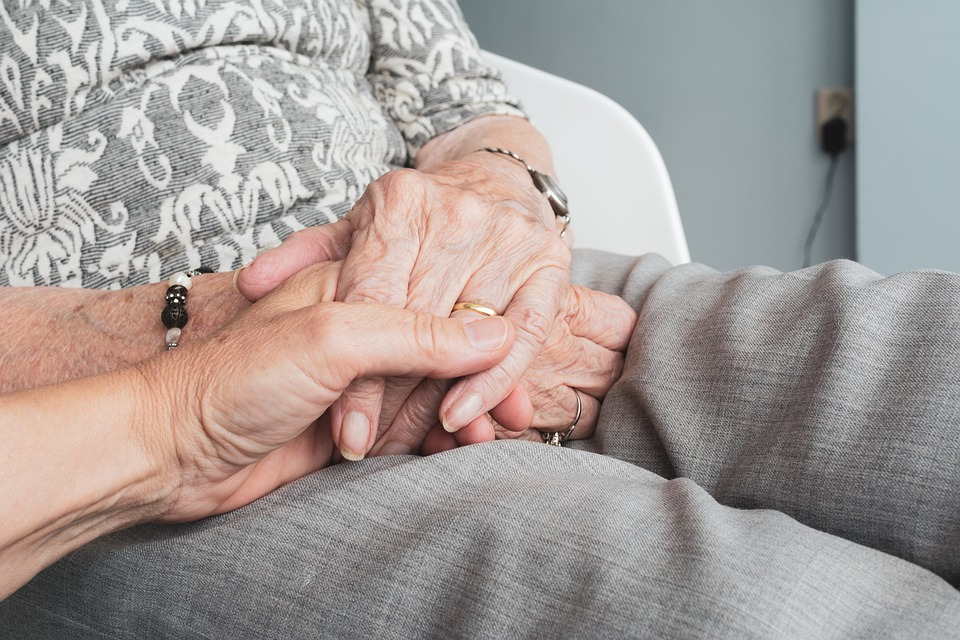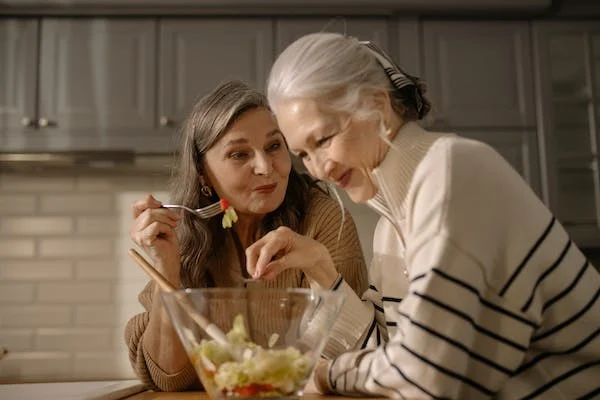Authored by Libby Howell, a.k.a. “Gamma,” Grandparent.info
Providing care to a senior loved one who has Alzheimer’s disease — defined as a type of dementia that slowly worsens the symptoms of impaired brain function, memory and behavior — can be particularly straining, both mentally and physically. Self-care can reduce that strain, but if you’re struggling to fit self-care into your routine as a caregiver, Arizona In-Home Care Association hopes you’ll consider some simple steps to take better care of your own health.
Try Changing Your Healthcare Plan
If you want to stay healthy as a caregiver, you need to have the right level of health coverage to help you reach your self-care and wellness goals. Many healthcare plans, including the Medicare Advantage options, offer extra coverage for things like wellness programs and preventative care that can help you feel your best. So, if you are a senior caregiver who relies on Medicare for your healthcare needs, be sure to research these plans before the current Open Enrollment Period is up. You have until December to make changes to your existing Medicare plan, which is plenty of time to do your homework on wellness coverages.
If you’re not eligible for Medicare just yet, your individual health insurance may offer other incentives for adding more self-care to your health routine. Or, you may be able to take advantage of corporate-sponsored wellness programs to boost your mental and physical health.
Think About Taking Your Vitamins
Providing care for a loved one can take a toll on your emotions, but it can also drain your energy. One way to restore your energy levels is to add a quality multivitamin to your diet. In addition to giving you the extra shot of energy needed to care for your loved one, a good multivitamin can also enhance your skin and balance your gut microbiome. Wondering how restoring balance to your gut can improve your mental health as a caregiver? Well, researchers have found that gut and mental health are closely connected. When your gut bacteria are out of whack, you are more prone to mood swings and may even be at a higher risk for depression and anxiety. So, taking a multivitamin that restores gut balance could help you manage any stressful emotions you are experiencing. You can also boost your mental health by sticking to certain diets, which show promise for relieving anxiety and depression.
Start Searching for Solutions to Financial Stress
Stress over finances is consistently ranked as a top source of anxiety for many Americans, and financial stress for family caregivers can be even more overwhelming. Caregivers are often working with less income and more expenses, and dealing with these pressures can quickly lead to emotional burnout. Thankfully though, you can take steps to alleviate financial burdens. For example, you should make sure that you are taking all applicable tax deductions, to lessen your tax bill each year and perhaps even net a refund. Using the Medicare resources listed above to research Medicare options can also help offset any financial stress since many of the same Medicare Advantage plans offer extended coverages to help with prescription costs.
Consider Lessening Your Daily Workload
One of the best ways to reduce your workload is to hire in-home care services. Even if it’s just a handful of hours a week, those hours translate into precious time you need for yourself. When looking for in-home care, search the Arizona In-Home Care Association list of recommended caregiving providers to find an agency that fits your location and budget.
If you cannot afford to have someone help you with the daily care of your senior family member, that doesn’t mean you can’t find other ways to free up your time for more self-care. Instead of looking for help with your caregiving responsibilities, for instance, look for help taking care of other errands around your home. If you have a hard time shopping for groceries and household essentials, consider using a delivery service to make shopping for the things you need more convenient. Many services offer free and low-cost delivery and the time saved can be priceless for caregivers who are struggling to make time for self-care. It’s also important to recognize when it’s time for long-term care, for your health and your senior’s safety.
Taking care of a loved one who has Alzheimer’s shouldn’t keep you from taking care of yourself. After all, you need your strength and emotional health in order to keep providing compassionate care to your family member. So, make self-care more of a priority.
Photo Credit: Pixabay











